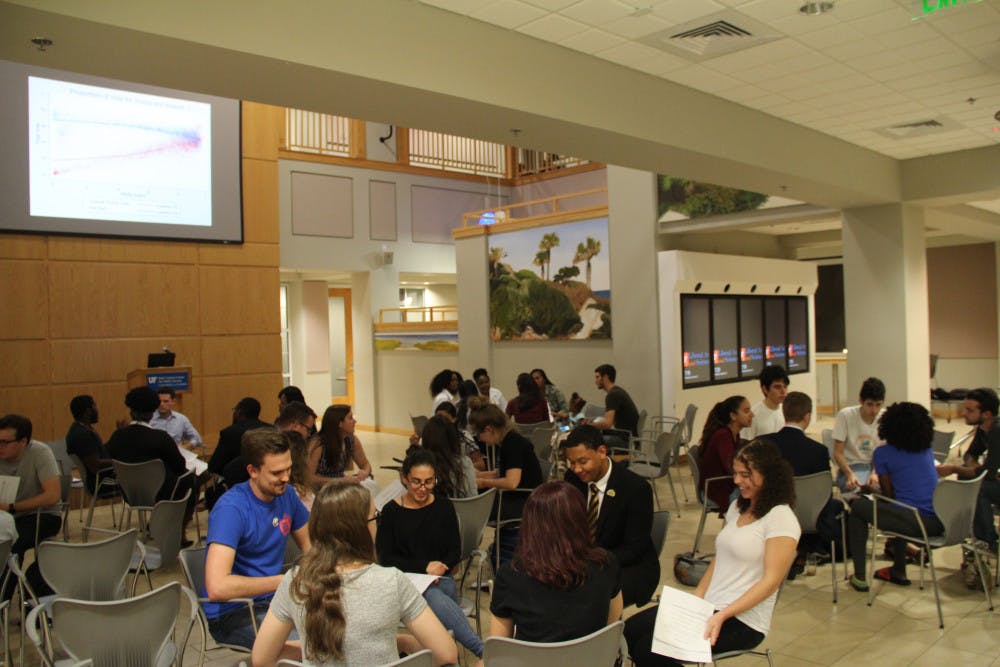Students sat shocked as professors listed statistics on modern and historical voter suppression Monday night.
Paul Ortiz and Daniel Smith, both professors in the College of Liberal Arts and Sciences, spoke about voter suppression for about an hour in Pugh Hall. Students then broke off into groups to discuss their personal experiences with voter suppression and how it’s connected to race, age, economic class and more.
The panel was organized by the UF chapter of Alpha Phi Alpha, the UF SISTUHS and the Graham Center Student Fellows.
“I’m glad that we got the turnout that we got, and I’m really glad that people were engaged in discussion,” Oliver Telusma, a 21-year-old UF political science senior, said. “I just wanted to start the conversation. I think their heads are in the right place.”
Susette Onate, a UF wildlife ecology sophomore and the daughter of immigrant Cuban parents, said she learned minority groups need more access to information on voting.
“I think that it needs to be made a bigger point that once a minority group gains the right to vote, it’s not indefinite, and we need to understand that’s why they continue to fight for it,” the 19-year-old said.
During the event, Ortiz gave an overview of voter suppression in the U.S., starting from the 19th century.
“The history of voting in the U.S. has a big impact on the contemporary practice of voting,” Ortiz said. “The right to vote has always been impacted by class and race and equality, and that is something people have been less familiar about.”
Ortiz said he finds it disturbing that many states have acted in ways that limit voter turnout. He said a current example of voter suppression is with felons who do not have their right to vote restored.
“If we say we’re a democracy, we have to be a democracy,” he said. “We’re not a democracy when we continue to disenfranchise millions of people.”
Ortiz said understanding the historical relevance of voter suppression can help people understand their rights.
“We earned that as a people, so that’s why I think it’s so important to remind ourselves of how we got those rights, and it’ll be harder to take those rights away from us,” he said.
Smith said things like restrictive voter ID laws, cuts to early voting days and long wait lines all promote voter suppression instead of voting opportunity.
Although Smith said state legislatures are implementing ways to suppress voters, he said it can’t entirely be blamed on the system.
“UF students should be embarrassed at how poorly they’ve engaged in the political system,” Smith said. “We have early voting; we have absentee voting. Students need to become more engaged locally. Voting is not just an activity every four years for the presidential election.”
@Christina_M18
About 40 students sit and discuss topics on voter suppression. Students spoke about topics like personal experiences with voter suppression, the problems with voter ID laws and more.






